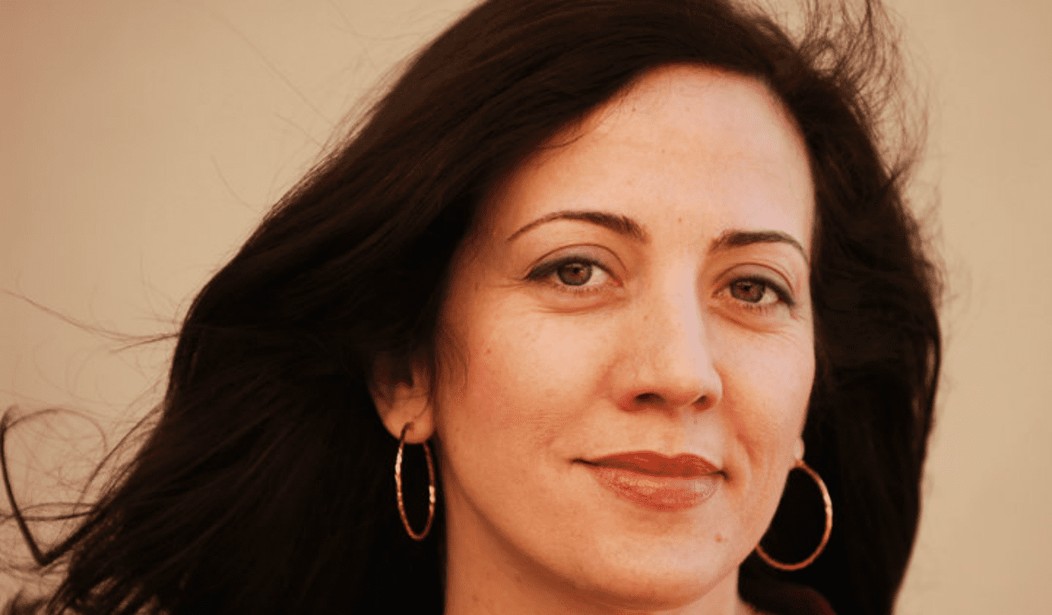When I saw the byline in the Los Angeles Times, I knew I recognized it, but I couldn’t place it at once. The title was cutesy: “Two Muslims walk into the Emmys…” The author: Lorraine Ali.
Ali’s article, which ran on September 19, was about Riz Ahmed and Aziz Ansari, both of whom had won Emmys (for acting and writing, respectively) two days earlier. For Ali, this was a great moment. A series like Homeland might depict Muslims with weapons, but the “shiny metal objects” held by Ahmed and Ansari at the Emmys weren’t guns but statuettes.
By winning, they’d “exploded stereotypes and made history.” Their victories exemplified “progressive Hollywood pushing back against the new president and his policies, which many in the entertainment industry consider hostile toward women, minorities, immigrants and the LGBTQ community.”
Perhaps best of all, Ahmed and Ansari had won for TV programs, respectively The Night Of (HBO) and Master of None (Netflix), “that demystified the scary ‘Islamist’ talked about so often on the Trump campaign trail.”
Why, I wondered, did the name Lorraine Ali ring a bell? Aha! I went to my bookshelves and took down a copy of my 2009 book Surrender: Appeasing Islam, Sacrificing Freedom. There I was, on page 140, writing about her Newsweek review of Ayaan Hirsi Ali’s 2007 book Infidel.
Born in Somalia, raised as a Muslim, subjected to female genital mutilation, and fully awakened by 9/11 to the evil reality of Islam, Hirsi Ali had gone on to become a brave, outspoken member of the Dutch parliament and leading critic of Islam’s treatment of women. When she made a film about that topic, her collaborator, Theo van Gogh, was shot and butchered on an Amsterdam street by a homegrown jihadist who, in a note, vowed to murder Hirsi Ali as well.
But she was unbowed. Relocating to America and living every day of her life with bodyguards, she published a series of books in which she eloquently told home truths about the religion of her birth. Briefly put, she’s one of the great heroines of our time.
But none of this seemed to matter to Lorraine Ali, herself the daughter of an Iraqi immigrant to the U.S. In her vile review of Infidel, she smeared Hirsi Ali as “harsh and uncompromising,” called her “one of Europe’s most infamous critics of Islam,” said that her book reached “an inflammatory conclusion tailor-made for her right-wing constituency,” and pronounced it “ironic that this would-be ‘infidel’ often sounds as single-minded and reactionary as the zealots she’s worked so hard to expose.”
In other words, Hirsi Ali is a cynical operator who isn’t telling important truths but playing to an audience; to criticize Islam as forthrightly as she does is to be “infamous,” “single-minded,” “reactionary,” and the equivalent, in some sense, of the savages who wish to murder her.
Lorraine Ali’s review of Infidel was no isolated case. Daniel Pipes, I now discover, had her number back in 2004. In that year, she attended a dinner held by the National Arab Journalist Association and organized by Ray Hanania, who said Ariel Sharon was a Nazi, Likud was a terrorist group, and Islamic terrorism was not terrorism but legitimate resistance. Accepting an award that evening, Lorraine Ali proclaimed that “the American public is seeking out the truth, as can be seen by the recent popularity of The Holy Qur’an.”
One representative sample from Ali’s more recent work: in 2010, under the rubric “Fashion & Style,” the New York Times ran a piece by Ali entitled “Behind the Veil.” It was a sympathetic profile of two New Mexico sisters, age 28 and 32, who wear niqab – the full face-covering scarf.
One of the sisters explained why. Disturbed by 9/11, she had “read the Koran and other Islamic texts” and “found nothing that justified the attacks.” The ensuing “backlash against Islam,” writes Ali, motivated this sister to wear niqab “to provide a positive example of her embattled faith.” She called the niqab “liberating.”
Nonsense, all of it: first, “the Koran and other Islamic texts” are crammed with commandments to slay the infidel and expand the House of Islam through violence; second, to America’s credit, there was no significant “backlash against Islam” after 9/11; third, Islam, far from being “embattled” in the sense of being on the defensive, is the supreme force of aggression in the world today; fourth, by definition, an article of clothing that is meant to symbolize female submission cannot be “liberating” to the wearer unless she entirely misunderstands its meaning.
These days, Ali is supposedly an entertainment writer, but her politics repeatedly shine through. In a September 8 review, she examined “several new military-themed [television] series.” While calling them “warmongering” (her original headline included the word “militaristic”), she praised them for “question[ing] the U.S. government’s competence and motives in running military operations” and for suggesting that “Uncle Sam’s intentions can be just as shady and dangerous as those of the enemy.”
Back in February, the Los Angeles Times let her write a story for its “Entertainment” section about her Iraqi nephew who is a student in southern California but who was worried that Trump’s travel ban might prevent him from re-entering the U.S. after winter break. Ali strove to make his situation sound like some kind of crisis. Would Abdullah be able to attend the Metallica concert for which he had tickets? (I guess that was the “Entertainment” angle.) But in the end there was no drama: he was let back into the country without incident.
But back to Ali’s recent item celebrating the Emmy victories of Riz Ahmed and Aziz Ansari. Millions of Americans are familiar with Ansari. He’s a mediocre actor and painfully unfunny comic who lucked into a role on Parks and Recreation and who, thanks to millennial audiences raised on banal PC “humor” and identity politics, fills stadiums while far more gifted stand-ups are doing small clubs.
His politics are right up Lorraine Ali’s alley: last year, in an article for the New York Times, he spun the Orlando gay nightclub massacre as a bad day for Muslims and argued that the real problem wasn’t Islam but guns. Hosting Saturday Night Live this May, he represented Donald Trump as wanting to eject all immigrants from the U.S. and joked that after Trump’s election, his supporters had cheered: “Now we don’t have to pretend we’re not racist any more!” (I told you he wasn’t funny.)
As for Ahmed, he’s a Brit who starred in a film about innocent, abused Guantánamo prisoners and, after the 7/7 terrorist attacks in London, recorded a song, “Post 9/11 Blues,” that attributed the “War on Terror” to racism. (“Israeli fighters are soldiers, Irish are paramilitary / And darkie ones are terrorists — how simple can it be?”)
Last year, in a Guardian article, Ahmed complained that on his way to L.A. to become an international star, he was subjected to the indignity of being detained and interrogated at the airport. (Join the club. I’ve been taken aside and grilled at length twice on entering Canada, and my blond Norwegian spouse was put through the same ordeal for over an hour at JFK. This, Ahmed, is the world your co-religionists have created.)
He’s no fan of the U.S.: “American society is pretty segregated, but the myth it exports is of a racial melting-pot.” And of course he complains about always being cast as a terrorist. Not to repeat myself, but: Hey, blame the terrorists, pal. Tens of thousands have been murdered in the name of Islam, and we’re supposed to care that a successful actor gets typecast in Hollywood and stopped by the TSA.
In any event, Lorraine Ali wants us to jump up and cheer because these two won Emmys. We’re supposed to share her view that their success has “demystified the scary ‘Islamist’ talked about so often on the Trump campaign trail.” As if jihadist terrorism were a figment of Donald Trump’s imagination, rather than a core tenet of Islamic doctrine! More, Ali actually expects us to see the presentation of Emmys to a couple of Muslims — and whitewashers of jihad — as a triumph for women and “the LGBTQ community.” Tell that to the women and gays in the Muslim world, Lorraine.
Bottom line: when it comes to Alis, you can keep Lorraine — I’ll take Ayaan.









Join the conversation as a VIP Member